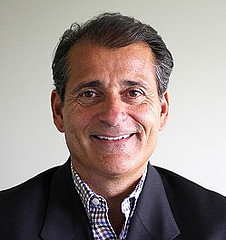The Rush for Genome Editing
Frank Magliochetti Report
The Rush for Genome Editing
Gene-editing technology has sparked a frenzy of competitors fueled to develop the first of what may be thousands of treatments for genetic disorders.
From science fiction of movies like Jurassic Park to the reality of GMO foods, the concept of customizing plants, animals and even human genomes has mesmerized our imagination and culture for decades. This obsession is not surprising considering the remarkable impact of genetic engineering on our lives, and the promise it may hold for our future.
Modifying the genes of an organism is no easy task. It’s not as simple as removing the parts you do not like with an eraser. It involves making changes at a molecular level that are both complex and challenging.
One concern among scientists is the modifications made in human germline cells – i.e. the sperm or the egg. These are genetic changes that would actually be passed on through generations and the fear is that there could be unexpected side effects. Couple that with the ethical concerns of people misusing this technology to intentionally modify the genome to make “designer babies” with enhanced characteristics. These are some real concerns that are causing scientists to pause and weigh the pros and cons of use of this technology.
More and more companies are racing to stay ahead of the trend and become the leaders in the field.
In Cambridge MA, Intellia Therapeutics Inc. has a 65,000 square foot build out underway, however, it is still planning to functioning while under construction.
Intellia is one of a trio of startups in the Cambridge area working locally in the biotech niche known as CRISPR-Cas9. The gene-editing technology was  discovered just four years ago.
discovered just four years ago.
Drug development historically has been a slow process – it often takes more than a decade to bring a medicine from lab to marketplace. But that’s changing, thanks to new machines that can screen drug targets faster and an entrepreneurial environment that’s more akin to high-tech than Big Pharma.
Intellia has high-profile collaboration deals with Swiss drug giant Novartis AG and Regeneron Pharmaceuticals Inc. of Tarrytown, N.Y. It raised $108 million in an initial public offering in May. Their scientists are working on gene-editing treatments for everything including the hepatitis B virus to a rare form of blindness. If all goes well, it could move its earliest drug candidates into clinical trials within 18 to 24 months.
Competitors for Intellia include Editas Medicine and Crispr Therapeutics Inc. both completed their own IPOs this year. There are more to come: all with the heightened interest of investors. These companies are in a race to develop the first treatment based on gene editing.
Genome editing is going to be a hot trend to watch in 2017 and for many years to come.
Frank Magliochetti is Managing Partner for Parcae Capital.
-
North Andover, Massachusetts
This column of posts is directed at the Healthcare Industry. Frank plans to release a new site dedicated to the industry. He currently assists companies who are building, restructuring, transforming and resurrecting there business’s. An example of his client base are, Xenetic Biosciences , IPC Medical Corp, Just Fellowship Corp, Environmental Services Inc., Parsons Post House LLC, ClickStream Corporation as well as having a business talk radio show; The Business Architect on the URBN network.









